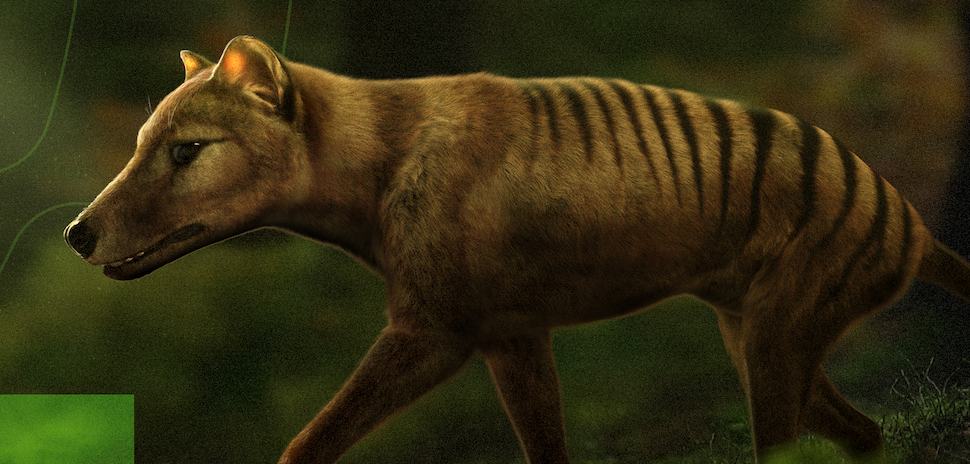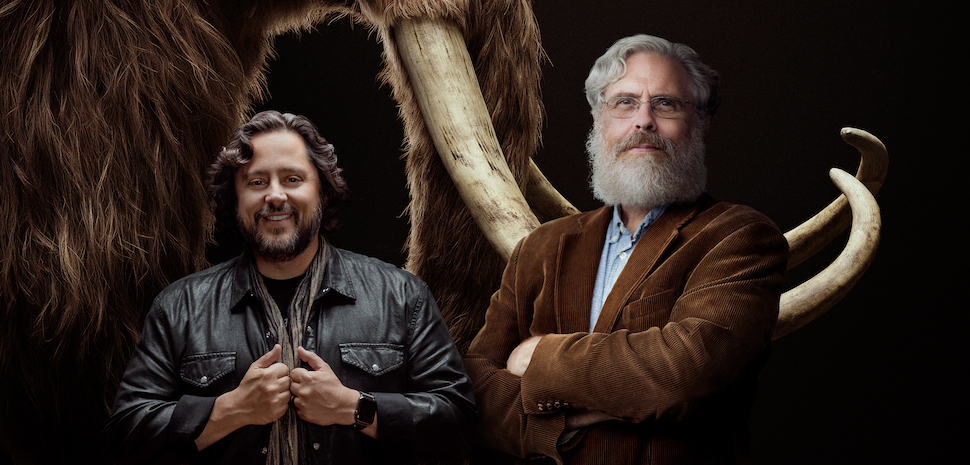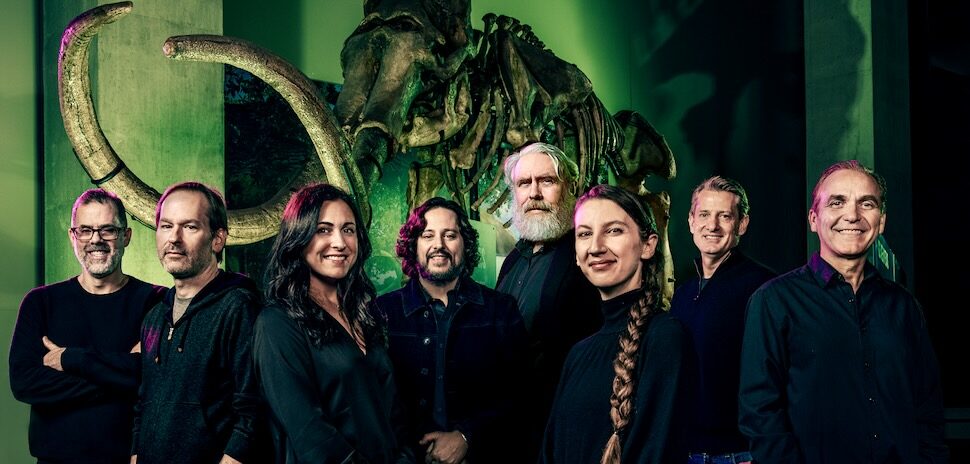The Tasmanian tiger—a striped marsupial that once roamed Australia, Tasmania, and New Guinea and thrived for millions of years—was hunted to extinction nearly 100 years ago. Now a Dallas company aims to rewind the clock and bring it back, with the help of an Australian university and “marsupial biobanking.”
Dallas-based Colossal Biosciences is already working to “de-extinct” the woolly mammoth to the Arctic tundra via a mammoth-elephant hybrid, using CRISPR genetic engineering. Today it announced the iconic Tasmanian tiger as its second gene-editing de-extinction project.
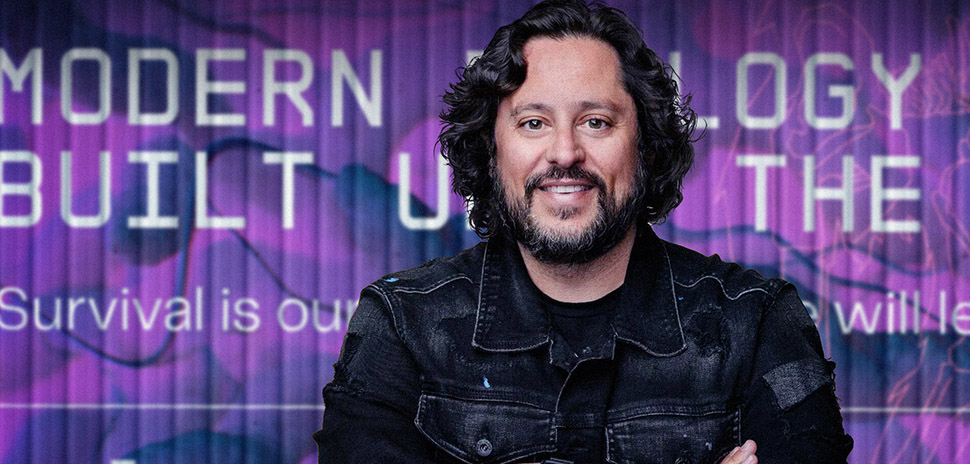
Colossal co-founder and CEO Ben Lamm. [Image: Colossal]
“We’re thrilled to be collaborating with Andrew Pask and the University of Melbourne to restore this amazing animal to Earth, while also further developing gestational and genetic rescue technologies for future marsupial conservation efforts,” Colossal’s co-founder and CEO Ben Lamm said in a statement.
“With our planet’s biodiversity at risk, we’ll continue to contribute scientific resources to preserving the species and ecosystems necessary to sustain life,” he added.
Returning an ‘apex predator’ to Australia and Tasmania
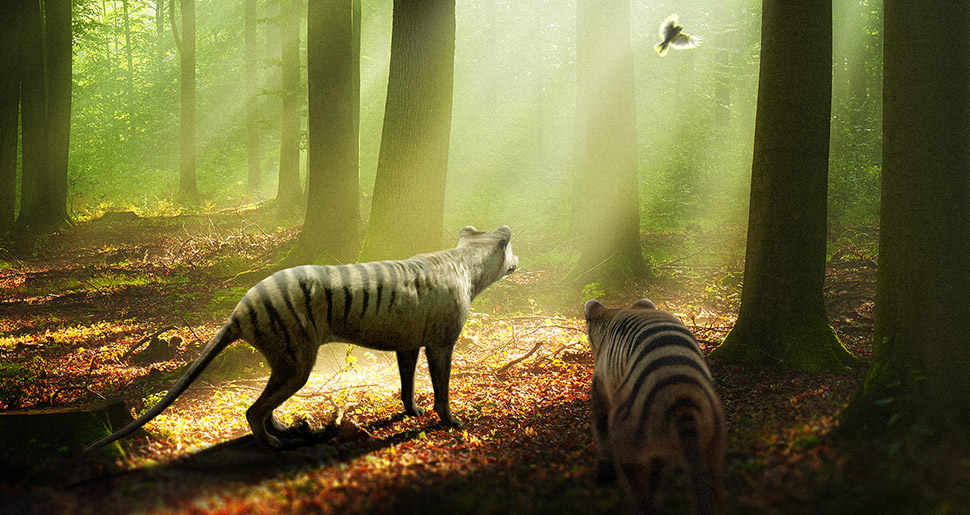
The Tasmanian tiger—known scientifically as the thylacine—was an apex predator that helped keep ecosystems in balance. [Image: Colossal]
Colossal isn’t trying to restore the Tasmanian tiger just because it’s a cool thing to do. The company says returning the predator to the wild could potentially help restore badly damaged ecosystems in Australia and Tasmania.
Australia has the worst mammalian extinction rate in the world, Colossal says. Without an apex predator, ecosystems suffer a series of ever-worsening effects, leading to disease, invasive species, increased wildfires, reduced carbon sequestration, and disrupted natural biogeochemical cycles.
The Tasmanian tiger (known scientifically as the thylacine) played a critical role by hunting non-native mesopredators, which prey on native herbivores. Its extinction has led to a vicious cycle of ecosystem degradation. If Colossal and its research partners are able to “rewind” the thylacine, it could create a top-down effect that helps restore balance to the ecosystems, the company says.
Melbourne’s Dr. Pask joins Colossal’s scientific advisory board
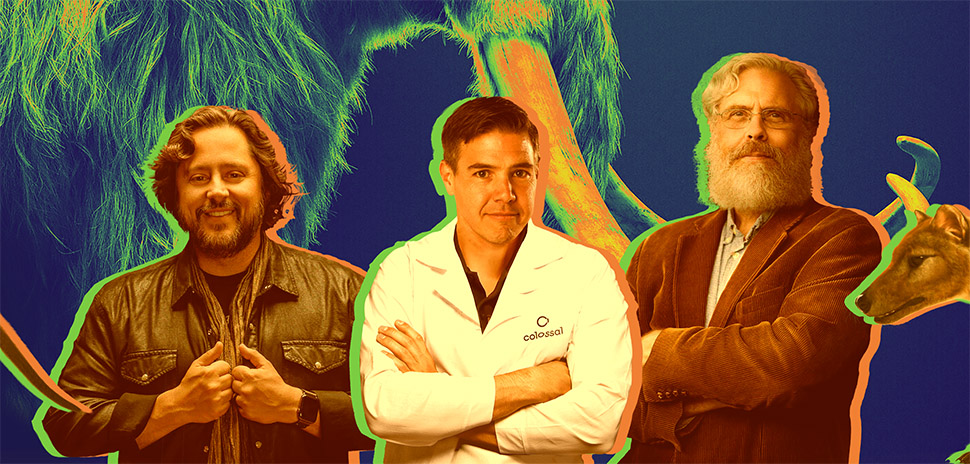
Team Thylacine, left to right: Ben Lamm, Dr. Pask, George Church. [Image: Colossal]
Colossal is partnering the University of Melbourne and its Thylacine Integrated Genetic Restoration Research Lab, headed by Andrew Pask, Ph.D. Colossal calls Pask “the leading marsupial evolutionary biologist and world’s foremost Tasmanian tiger expert.”
“This is a landmark moment for marsupial research and we’re proud to team up with Colossal to make this dream a reality,” Dr. Pask said in the statement. “Rewilding the thylacine to the Tasmanian landscape can significantly curb the destruction of this natural habitat due to invasive species. The Tasmanian tiger is iconic in Australian culture. We’re excited to be part of this team in bringing back this unique, cornerstone species that mankind previously eradicated from the planet.”
Pask has also joined Colossal’s scientific advisory board, bringing his knowledge of marsupial gestation and evolution to the company. The board’s other members include Beth Shapiro Ph.D., Love Dálen Ph.D., Thomas Hildebrandt Ph.D., Kenneth Lacovara Ph.D., Carolyn Bertozzi Ph.D,. and Paul Ling Ph.D. among others.
Colossal has raised $75 million in funding
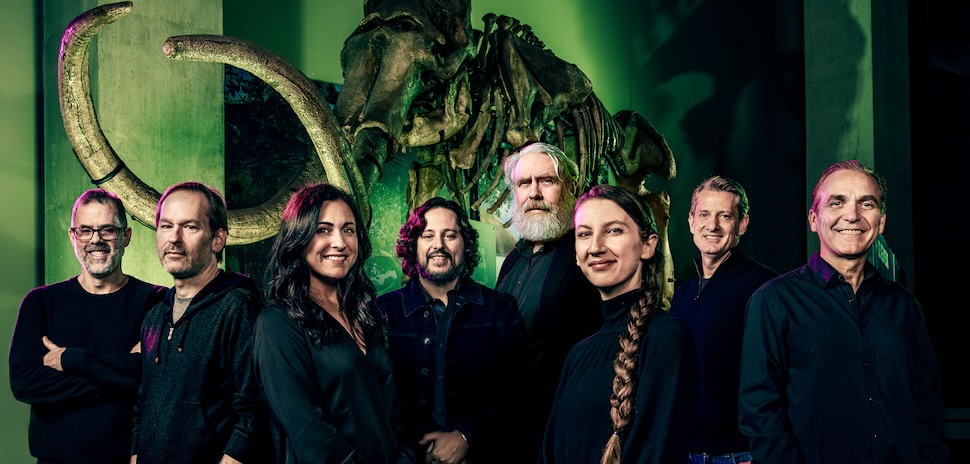
Colossal leadership team, L to R: Peter Phillips, chief business officer; Andrew Busey, chief product officer; Sarah Grant, chief of staff; Ben Lamm, co-founder/CEO; George Church, PhD, co-founder; Eriona Hysolli, head of biological sciences; Kent Wakeford, COO; and Brian Beard, chief legal officer. [Photo credit: John Davidson Photography]
In March, Colossal announced it had raised $60 million in a Series A round led by Thomas Tull and At One Ventures, with participation from Untamed Planet, Animoca Brands, Breyer Capital, Animal Capital, Arch Ventures co-founder Robert Nelsen, Paris Hilton, Bold Capital, First Light Capital Group, Boost VC, Jazz Ventures, Builders VC, Green Sands Equity, Draper Associates, and Charles Hoskinson, among others. Including the $15 million raised for its September 2021 launch, its total raise at the time was $75 million.
Lamm told Dallas Innovates in March that his Colossal team has expanded to 48 people in its first five months, including six post-doctoral candidates working in co-founder Dr. George Church’s Boston lab.
“I don’t think there’s a typical day at any startup, especially one like Colossal,” Lamm told us at the time. “We have teams working on genetic editing, teams working on computational biology and comparative analysis, teams working on exo-dev projects as precursors to the [mammoth-elephant hybrid’s] artificial womb.”
‘Thor’ Actor Chris Hemsworth is an investor—and a ‘Tassie Tiger’ lover
Chris Hemsworth—the Australian actor know from hit movies like “Thor” and “Avengers: Endgame”—is also a Colossal investor, and welcomes the possibility of the Tasmanian tiger returning to his homeland. His brothers Luke and Liam are investors as well.
“Our family remains dedicated to supporting conservationist efforts around the world and protecting Australia’s biodiversity is a high priority,” Hemsworth said in the statement. “The Tassie Tiger’s extinction had a devastating effect on our ecosystem and we’re thrilled to support the revolutionary conservation efforts that are being made by Dr. Pask and the entire Colossal team.”
The Hemsworths are longtime supporters of global conservationist efforts, Colossal says, and “were critical to the successful return, protection, and re-release of the Tasmanian devil to mainland Australia.”
De-extinction will require advances in marsupial assisted reproduction tech
The successful birth of the thylacine will require advances in marsupial assisted reproductive technology, Colossal says, leading to the development of gestation and maturation devices to help conserve any marsupial.
“Andrew and his lab have made tremendous advances in marsupial research, gestation, thylacine imaging, and tissue sampling,” Colossal co-founder Dr. George Church said. “Colossal is excited to provide the necessary genetic editing technology and computational biology to bring this project, and the thylacine, to life. It’s an incredible collaboration and project with far-reaching benefits for animal conservation efforts at large.”
“We’re excited about the applications of these technologies in being able to conserve marsupial species that are on the brink of extinction before we lose them forever,” added Barney Long, senior director of conservation strategies for Re:wild.
![]()
Get on the list.
Dallas Innovates, every day.
Sign up to keep your eye on what’s new and next in Dallas-Fort Worth, every day.










